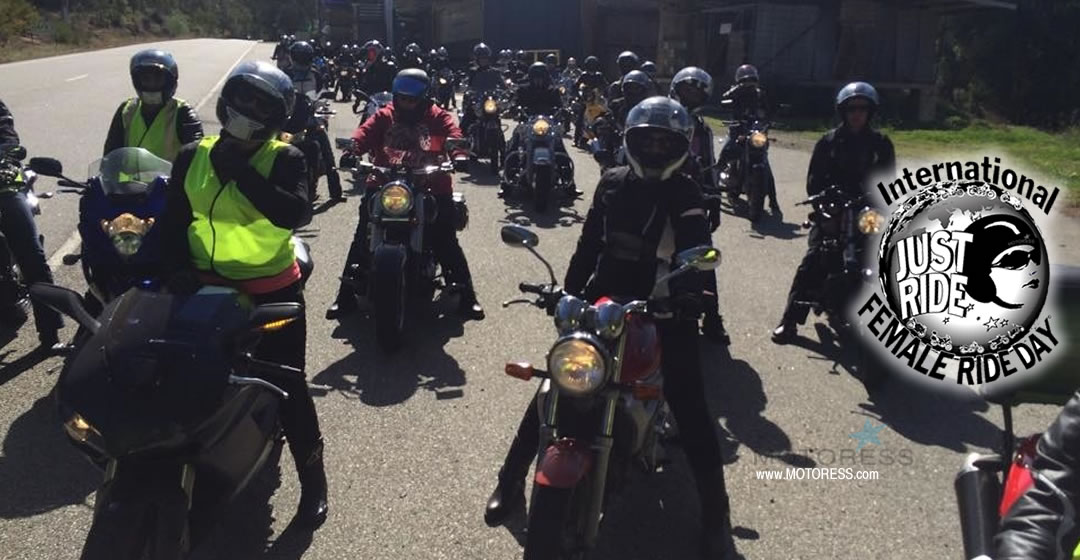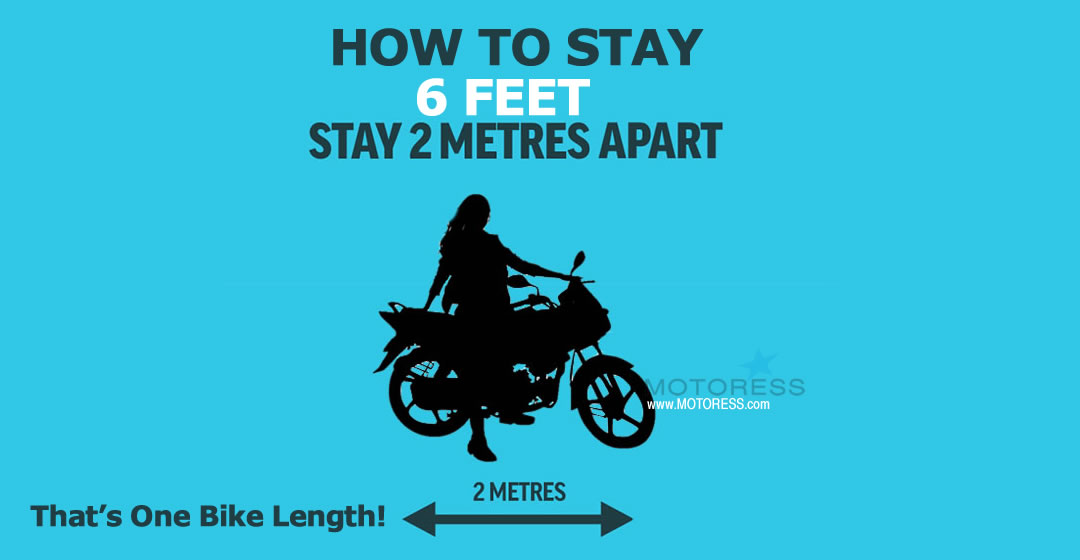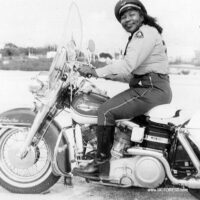Last Update: 10 February 2024

Hosting an IFRD gathering? We want you to be safe and because the Coronavirus (COVID-19) varies in all communities, the following complete Coronavirus guide for International Female Ride Day event hosts and planners has been created to help you navigate your “JUST RIDE” happening with the best possible Covid-19 safety protocols. Our IFRD Coronavirus guide is to supplement — not replace any state, local, territorial, or tribal health and safety laws, rules, and regulations with which gatherings must comply. We also recommend that IFRD hosts and organisers continue to assess your planned happening based on the ever changing, and current conditions.
Coronavirus Guide for International Female Ride Day
How Can IFRD Host And Event Planners, and Organisers Ease Coronavirus (COVID-19) Risks?
To prevent or limit the spread of Coronavirus (COVID-19) at IFRD gatherings consider rick-easing measures that focus on being more protective such as separating people from each other and limiting access to shared surfaces through physical distancing and physical barriers. These protective measures are not always possible at larger IFRD gatherings/events. Measures that are less protective rely on individuals to consistently and properly follow personal protective practices (e.g., hand hygiene, wearing of NMM or cloth face coverings).
To maximise safety, use a “layered” approach with multiple measures to reduce the risk of COVID-19 spread, including decreasing the number of interactions with others and increasing the safety of interactions.
If IFRD planners and organisers have concerns regarding the ability to ease risks appropriately, be sure to consult your region’s public health authorities for additional advice. This includes whether or not the gatherings/events should occur.
Here are examples of risk easing measures for your consideration. As an IFRD planner, organiser, and host of a gathering or event, you are encouraged to find resourceful and adaptive ways to ease risks.
Discourage Those Who Are Ill From Attending The Gathering or Event
-
- Consider pre-gathering/event communications (e.g., phone, text, email or web-based notices) to expected IFRD attendees to share information on the expected behaviours (e.g., screening for symptoms and staying home if ill, physical distancing, hand hygiene, whether the use of face mask, or cloth face coverings is recommended, self-monitoring for symptoms of Coronavirus (COVID-19) post-attendance and isolating if appropriate).
- Ensure that strict exclusion policies are in place for attendees who are symptomatic, even if symptoms are mild, or have been advised by the public health authority to quarantine (self-isolate) due to exposure.
- Ask attendees if they are ill or have symptoms of COVID-19 before attending or ask attendees to take a self-assessment tool to determine if they have symptoms consistent with COVID-19.
- Adjust cancellation and if applicable IFRD event reimbursement policies. This is to encourage and enable attendees to stay home when ill, undergoing COVID-19 testing, in quarantine (self-isolation), or if they are taking care of someone who is ill (e.g., child).
- Post non-stigmatizing, culturally appropriate, and accessible signage. This needs to be suitable for the attendee’s to identify symptoms of COVID-19 with clear instructions for what to do if prospective attendees are experiencing symptoms.
- For larger IFRD gatherings in a structured environment, follow directions from your local public health authority of the host community. Observe policies for screening attendees, staff and volunteers for symptoms of or recent exposure (14 days prior) to Coronavirus (COVID-19) before allowing them to enter the venue or attend the gathering.
- Have A Plan In Place For Dealing With Attendees Who Become Ill Or Are Suspected of Having COVID-19 While Attending Your IFRD Gathering
- Develop plans/procedures/protocols in advance that specifically address how to safely care for attendees who develop COVID-19 related symptoms or who need care (e.g., injury, illness, emotional upset) while at the gathering/event.
- Keep detailed lists of attendees and their contact information. Use a sign in sheet, or a log book (maintained by one operator to prevent sharing of communal pens/papers) in a safe and secure manner to facilitate public health investigation of cases in the event of an exposure at the gathering/event. Identify a space where attendees can be isolated from others if they develop symptoms or have been exposed to Coronavirus (COVID-19) until they can go home safely in a private vehicle and/or undergo medical assessment.
- If the attendees are from outside the community where the gathering/event is occurring, and public transportation was used, public health authority can provide advice on a safer return home.
- Establish procedures and protocols if physical distancing cannot be maintained with the ill attendees (i.e., direct care is unavoidable). The Risk mitigation tool for workplaces/businesses operating during COVID-19 pandemicprovides advice on personal protective equipment.
Promote and Facilitate Personal Preventive Practices
-
- Keep attendees informed about public health advice applicable to the gathering/event.
- Model and promote the use of personal protective practices (e.g., frequent hand hygiene, avoid touching the face, respiratory etiquette, and wearing a NMM (non medical mask) or cloth face covering if physical distancing is not possible to maintain or is unpredictable, clean and disinfect frequently touched surfaces with approved products).
- Post signage in multiple locations that reminds attendees to practice these measures:
-
- Provide convenient and increased access to hand hygiene facilities (e.g. by placing hand sanitiser dispensers or hand wash stations in easy to see locations).
- Ensure adequate supplies are available to reinforce hand hygiene and respiratory etiquette such as liquid soap, alcohol-based hand sanitizer (at least 60% alcohol), paper towels, tissues, and no-touch waste receptacles.
- Promote increased environmental cleaning of attendees’ personal environment if appropriate (e.g. provide sanitising wipes so attendees can clean their own motorcycles, cargo, gear, or equipment.
-
- Encourage attendees to self-monitor for symptoms of Coronavirus (COVID-19) after attending the gathering/event, and to quickly isolate if symptoms develop.
- Consider providing attendees personalised swag encouraging personal preventive practices (e.g., hand sanitiser, liquid hand soap, NMMs).

Promote Physical Distancing (keeping a distance of 2 metres from others), which is one of the most effective ways to reduce the spread of illness.
-
- Reinforce general personal practices to maintain physical distancing, such as avoiding greetings like handshakes, high fives, fist bumps, and hugs.
- Determine the maximum of number of attendees (and staff) allowed in the location/venue at any one time to maintain physical distancing. Encourage and facilitate virtual participation for those not attending in person, if feasible.
- Restrict occupant capacity of indoor/outdoor spaces to avoid crowding.
- Set up motorcycle parking parameters to ensure physical distancing when sitting on bike or parking.
- Establish 2-metre (6 feet) separation between attendees (e.g., leave empty seats between attendees, leave space between grouping or “social circle/bubble”, separate the tables). Use spacing aids such as visual cues to encourage 2-metre / 6 feet distances (e.g., accessible signage, floor markings in indoor spaces, circles or “bubbles” marked or painted on the ground in outdoor spaces).
- Place dedicated staff/volunteers in potential high traffic areas to direct the movement of attendees and encourage physical distancing.
Create Physical Barriers Between Attendees And Staff When Physical Distancing Is Not Possible
-
- Instal physical barriers between attendees and staff (e.g. Plexiglas window at a booth/kiosk/cubicle higher than head-height), if possible.
- Provide barriers to assist with distancing at entrances and exits, while ensuring appropriate and safe accessibility.
- Stagger arrivals, departures and breaks, where possible, to reduce congestion at points of entrance and exit and in common areas, while respecting observances.
Increase Ventilation
-
- Keep your IFRD gathering outside. Ensure physical distancing is maintained and consider how to accommodate if bad weather suddenly arises (e.g., plan for an alternative safe indoor space, or cancelling the gathering/event if it cannot be safely moved indoors while ensuring physical distancing).
- Ensure that indoor ventilation systems operate properly.
- Open windows if possible and, if weather permits.
Ease Risks From Exposure To High-Touch Surfaces
-
- Increase frequency of environmental cleaning, especially washrooms and high touch surfaces before, during and after the gathering/event.
- Reduce the number of common surfaces that need to be touched and eliminate any shared objects that are not essential for safety (e.g., prop doors open, use no-touch plastic-lined waste containers, etc.).
- Eliminate or restrict non-essential shared equipment (e.g., condiment stations at concession stands)
- Encourage attendees to bring own supplies and equipment such as refreshments, towels, water bottles.
- Prohibit buffet meals i.e., where communal cutlery is shared, provide single-serving refreshments only.
- Offer contactless payment methods (i.e. minimise use of cash), if possible.
Modify practices to reduce how long attendees are in contact with each other and how many attendees come into contact with each other.
-
- Keep the duration of your IFRD gathering/event to a minimum to limit contact among attendees.
- Prohibit activities that can contribute to the spread of COVID-19 in confined indoor spaces – such as group photo, fashion shows, hugging.
Consider Whether A Policy About Attendees Wearing Masks Or Bandannas Is Required For Your Gathering
-
- When the wearing of NMMs or cloth face coverings is recommended for periods of time when it is not possible to maintain a 2-metre /6 foot physical distance from others consistently, particularly in crowded settings.
- To protect others, the wearing of commercially available or homemade NMMs or cloth face coverings is an additional personal practice that may help prevent the infectious respiratory droplets of an unknowingly infected person (the wearer) from coming into contact with other people.
- The wearing of NMM and cloth face coverings is not a replacement for other important public health measures. Those wearing masks should be reminded to comply with essential personal preventive practices such as frequent hand hygiene and physical distancing.
Coronavirus (COVID-19) spreads from person to person, most commonly through respiratory droplets. (I.E generated by coughing, sneezing, laughing, singing, shouting or talking.) During close interactions (i.e., within 2 metres/6 feet). People who have COVID-19 may have few to no symptoms, or symptoms may be mild. COVID-19 can be spread by infected individuals who have mild symptoms, or who have not yet or who may never develop symptoms.
Ask yourself:
-
- Will IFRD attendees interact (i.e. within 2 metres/6 feet) with one another? Gatherings/events with a higher number of contacts are presumed to have greater risk.
- Will IFRD attendees have close interactions with one another? Close interactions are defined as those within 2 metres/ 6 feet of others. Close interactions are presumed to have greater risk of transmission than interactions at a distance.
Coronavirus (COVID-19) can also spread through touching something with the virus on it, then touching your mouth, nose or eyes before washing your hands.
-
- Will attendees frequently have contact with high-touch surfaces (i.e. frequently touched by others)? A higher frequency of contact with high-touch surfaces (e.g., washrooms, door handles, service counters, electronic equipment, and communal items such as card payment machines) is presumed to have greater risk.
- Will attendees have prolonged close interactions with one another? Prolonged exposure is defined as lasting for more than 15 minutes of time being less than 2 metres/6 feet away, and may be cumulative (i.e., over multiple interactions). Person-to-person spread is more likely with prolonged close contact.
- Will your IFRD gathering/event involve activities that may increase the potential of droplet spread, such as cheering, playing wind instruments, or sharing food or drinks? Gatherings/events with activities likely to generate droplets are presumed to have greater risk.
Signs and Messages
-
- Post signs in highly visible locations (e.g., at entrances, in restrooms) that promote everyday protective measures and describe how to stop the spread of germs by properly washing hands
- Broadcast regular announcements on reducing the spread of COVID-19 on public address systems.
- Include messages (for example, videos) about behaviours that prevent spread of COVID-19 when communicating with staff, vendors, and attendees (such as on the event website and through event social media accounts).
- Find freely available CDC print and digital resources about COVID-19 on CDC’s communications resources main page.
Be sure to circulate the IFRD Coronavirus Guide and link to your social media platforms prior to your event.
Be safe and JUST RIDE!
*This article sourced in combination with Canadian Government Coronavirus Prevention Guidelines.




